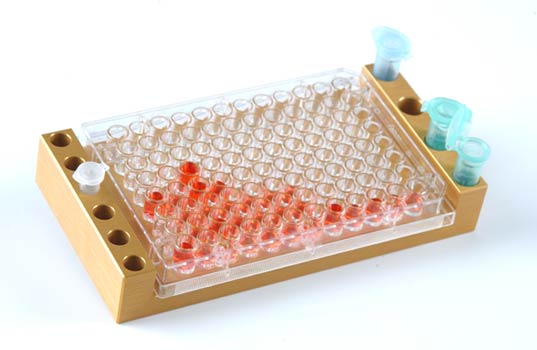Scientific establishments such as laboratories, research centers, and companies require high quality lab equipment to perform a variety of tests and experiments. The success of these activities depends a great deal on the strength, quality, and durability of the lab equipment. They not only help to provide accurate results but they also enhance the efficiency of the work done at the establishment. It suffices to say that the process of purchasing laboratory equipment must be completed keeping a lot of important factors in mind.

What to Consider When Buying Laboratory Equipment
Before you begin to consider the below suggestions, there are certain tasks that need to be performed. You first need to create a list of product requirements for your specific needs. Create a budget and compare your list with it. Once these matters are clear, you can begin your search for buying laboratory instruments.
Choose a Reputed Brand: To ensure complete success in the laboratory, you need equipment of exceptional quality, which will provide flawless performance. The best way to start is by looking at the products of reputed brands. Well-known lab equipment manufacturers possess the best design and manufacturing technologies to create the products. Large scale manufacturers can also provide you all the equipment you need. So you don’t have to go to multiple manufacturers to source various devices.
Check the Standards: These refer to the regulatory bodies that certify whether the manufacturing processes and the products that are being made meet global standards. A few well-known standards are ISO and CE Some manufacturers also try to obtain ISTA certification for safe transportation of laboratory equipment.
Hone in on the Specifications: Once you found a reputed brand that possesses the required certifications, the next thing to do is to look at the products and specifications. It is imperative that you get products, which will work, for you. Check specifications such as material density, ability to cope with high temperatures, freezing and melting points for certain tubes and vials, strength, and durability. These days a lot of laboratory instruments are manufactured with inferior quality and functionality to drive down the cost. Cost of the product should not be the major consideration. It is not economical to replace the cheaply made instrument repeatedly or have always down time because the instrument need repair. Make sure the instrument you are purchasing has the dimensions, which will fit the space available.
Ensure Warranty on Equipment: Product warranties can help you to put your mind at ease in case any of the ordered products get damaged during use or require replacing. Many lab equipment manufacturers provide general warranties as well as extended warranties on products.
Enquire about After Sales Services: The more support you receive from the manufacturer or distributor, the better your buying experience will be. Enquire whether the equipment provider will be able to offer you services related to preventive maintenance, personal support, and custom requirements. Many times when extended warranty is purchased; preventive maintenance visit by the sales engineer is included. Read the fine print of the purchase document, and warranty.
If all these above requirements are easily met during the purchase, then you can look forward to a long business relationship for sourcing and purchasing laboratory equipment.
